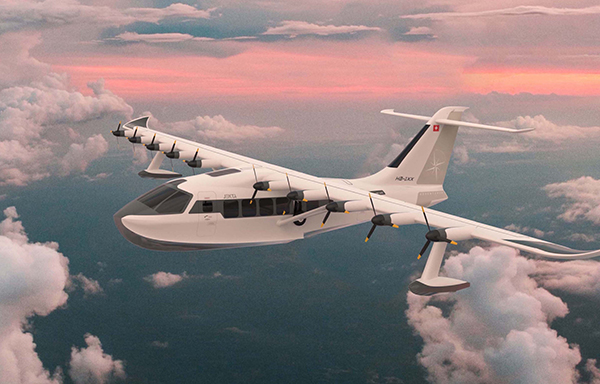Jekta has signed a Memorandum of Understanding (MoU) with Honeywell. The accord signifies the first step in exploring, identifying, and confirming a suite of Honeywell systems to integrate with the world’s first 19-seat, electrically powered, regional, amphibious aircraft.

In conjunction with Jekta, Honeywell will design and co-develop aeronautical systems that will optimize efficiencies, enhance streamlined operations, and augment the safety of aircraft operations, while ensuring minimal operational environmental impact and delivering a best-in-class passenger experience. In addition, Jekta and Honeywell will collaborate on discerning the viability of single-pilot operations for commercial flying of the PHA-ZE 100 class of aircraft.
The MOU marks a significant milestone for Jekta as the Switzerland-based OEM will leverage Honeywell’s extensive expertise and maximize knowledge transfer in its endeavors to deliver a new class of amphibious flying boats to the global regional seaplane market. Honeywell avionics, electric engines, flight control systems, and connectivity will all be discussed under the terms of the MOU, with the final system architecture and integration to be confirmed by the end of 2023.
“Our sustainable airframe represents the most contemporary design and development, and consequently, we want to partner with suppliers renowned for their vision, expertise and flexibility. Honeywell has all these qualities and more. The signing of this MOU is a real vote of confidence for Jekta and the PHA-ZE 100, which will satisfy the travel demands of a whole new generation of passengers seeking affordable, environmentally friendly, regional travel solutions. We are proud to be a beneficiary of the years of Honeywell experience and anticipate that it will add real value to the development of an aircraft that operators will welcome, and passengers will love,” says George Alafinov, CEO of Jekta Switzerland.
The MOU signed on 20 April and began with immediate effect. Jekta and Honeywell are already in ongoing discussions to identify key components for integration, environmental operating requirements and roles and responsibilities.
The PHA-ZE 100 amphibious flying boat will be certified to EASA CS-23 and US FAA FAR-23 standards for fixed-wing passenger aircraft. It is optimized to serve coastal and island communities, regional routes currently limited by operational costs, and to support new low-cost, sustainable services between cities without the need for the installation of expensive land infrastructure. Low maintenance and fuel costs, much-reduced noise, no pollution impact, and minimal aviation infrastructure requirements combine to make the PHA-ZE 100 an optimal platform for sustainable and new operations.



